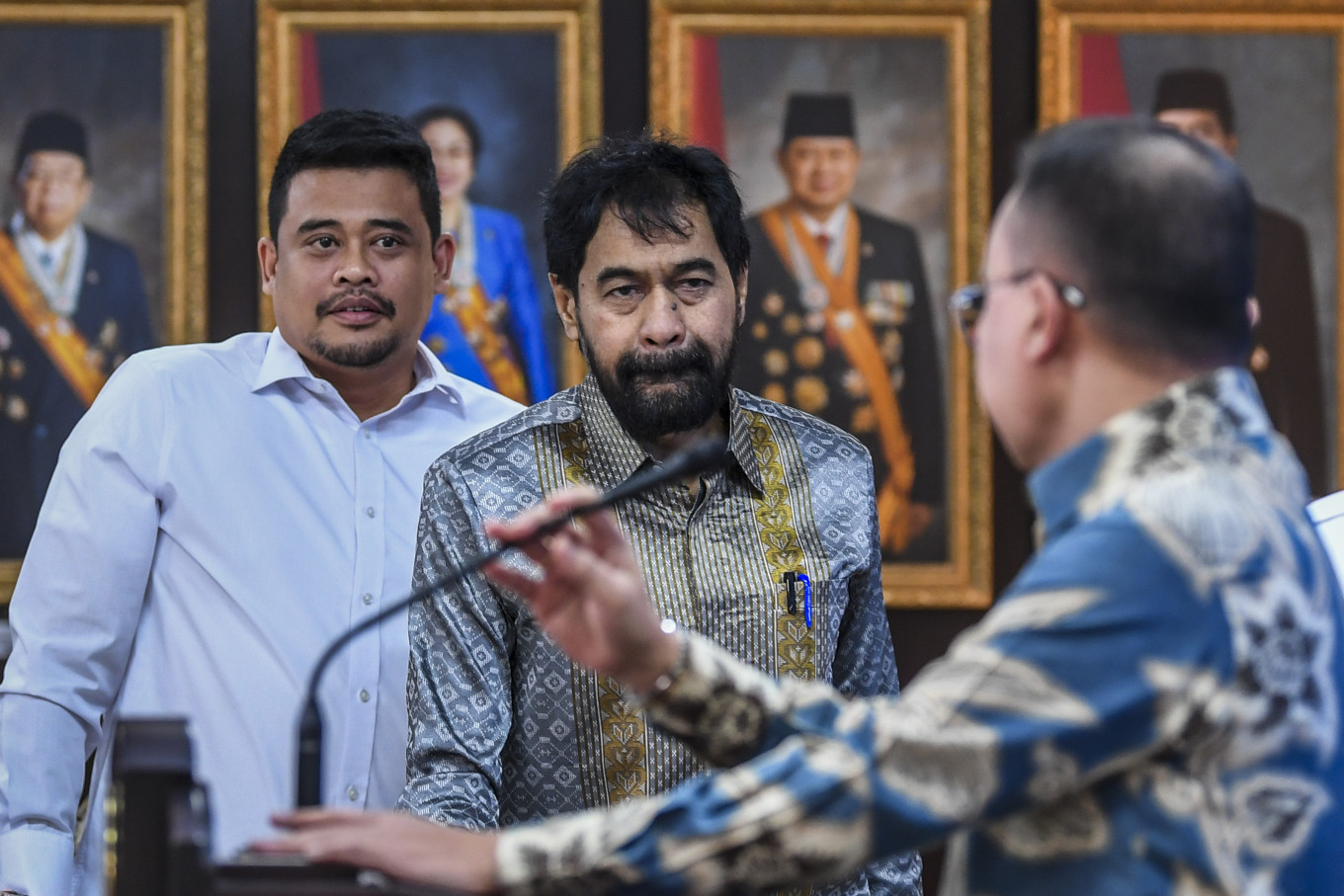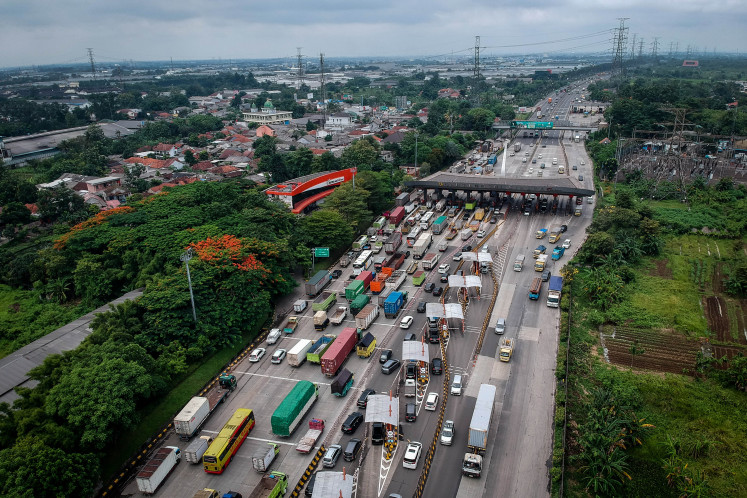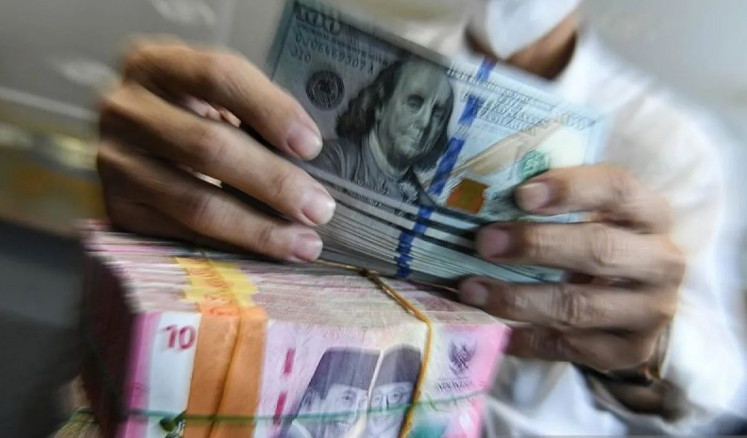Popular Reads
Top Results
Can't find what you're looking for?
View all search resultsPopular Reads
Top Results
Can't find what you're looking for?
View all search resultsA test of trust
The short-lived dispute between Aceh and North Sumatra over four outlying islands serves as a reminder that a nation as vast and diverse as Indonesia requires continuous political will and efforts, as well as sensitivity, to maintain our hard-fought, hard-won national unity.
Change text size
Gift Premium Articles
to Anyone
 North Sumatra Governor Bobby Nasution (left) and Aceh Governor Muzakir Manaf (center) approach House of Representatives Deputy Speaker Sufmi Dasco Ahmad to address a press briefing at the Bina Graha presidential office in Central Jakarta on June 17, 2025, following a limited meeting with President Prabowo Subianto. (Antara/Galih Pradipta)
North Sumatra Governor Bobby Nasution (left) and Aceh Governor Muzakir Manaf (center) approach House of Representatives Deputy Speaker Sufmi Dasco Ahmad to address a press briefing at the Bina Graha presidential office in Central Jakarta on June 17, 2025, following a limited meeting with President Prabowo Subianto. (Antara/Galih Pradipta)
N
ational unity faced an impromptu challenge recently when a dispute erupted between the country’s two westernmost provinces after the Home Ministry issued a regulation that placed the four border islands of Lipan, Panjang, Mangkir Besar and Mangkir Kecil, which had been part of Aceh jurisdiction for decades, under North Sumatra, citing their geographic proximity to the neighboring province.
The move has raised the ire of the people of Aceh as well as its governor, Muzakir Manaf.
For Muzakir, the new policy opened an old wound from his time as a commander of the now defunct separatist group Free Aceh Movement (GAM), when he stood against Jakarta to demand greater control over the province’s region and resources. Two decades since the Helsinki peace agreement, he found himself in another public campaign, this time challenging the Home Ministry’s arbitrary decision to “cede” the islands to North Sumatra.
Fortunately, President Prabowo Subianto quickly resolved the dispute by restoring the islands to Aceh, in consideration of their shared history and the reality on the ground with regard to the islanders’ close bond with the province.
We applaud the President for his quick action to resolve the dispute and prevent any unnecessary brouhaha that might have followed. As the world’s largest archipelago nation comprising thousands of islands divided by vast waters, history shows that national unity has been both hard-fought and hard-won.
Since gaining independence from Dutch colonial rule, the central government has struggled to deliver equal welfare among its diverse peoples while maintaining political and economic stability.
The government has a long record of dealing with postindependence rebellions and separatist movements, as Jakarta, along with the military, has been viewed as an oppressor that continues to benefit the country’s elite rather than the people, especially those in regions outside Java.
During the reform era following the fall of Soeharto, Indonesia made major strides in democracy and decentralization to prevent corruption and the concentration of power in the hands of the elite, as well as in bringing development and welfare to non-Java regions.
Under GAM’s aim to seek independence from Indonesia, Aceh was once the center of a long-running insurgency from the 1970s until 2005 that is estimated to have claimed at least 15,000 lives. The conflict ended with the Finland-led Aceh Peace Agreement, followed by the government’s decentralization and regional autonomy policies.
Aceh was granted the status of special province, under which it has the authority to issue its own regulations including the implementation of sharia, as well as to have its own elections and political parties. It also has the right to develop its resources and generate local development revenue. Other provinces don’t possess these political privileges.
While human rights activists continue to report violations under Aceh’s Islamic laws, local uprisings are hardly heard of.
Jakarta has meanwhile reduced its military operations in restive regions where insurgents continue to fight for separatist goals, including Papua.
Statistics show that regions outside Java still lag behind in economic growth and development, but regional autonomy and direct elections have significantly reduced discontent toward Jakarta.
The absence of conflict should not be taken for granted, however. Jakarta must continue to build trust and maintain strong bonds with all regions. And this will only happen when the government relinquishes its perceived role of an oppressor or a colonizer that extracts local resources but gives very little in return.
Prabowo and his administration may have passed the recent test with Aceh, but they must remember to apply fairness and justice for all people across the country. Otherwise, the government just might be reminded that unity is a fragile construct in a nation as large and diverse as we are.










